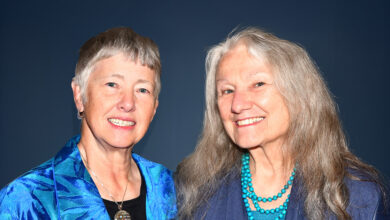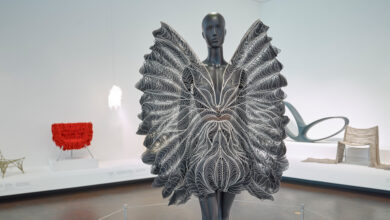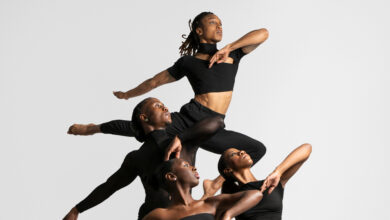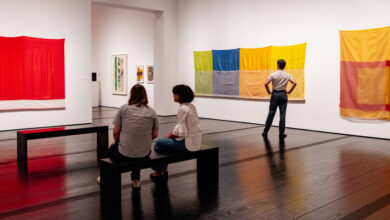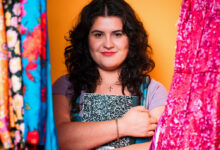Classic Lily
The queen of character comedy, who soon brings her new one-woman show to Houston, chats about her successes, her failures, her muses, and, most importantly, the love of her life.
When I write up an interview, I usually insert a notation to indicate where either the subject or I laughs. But not this time, because in this conversation with Lily Tomlin, I laughed all the way through it. At times I laughed so hard and so long that my face was hurting. I’m convinced that any conversation with Lily Tomlin could be a best-selling CD.
Tomlin was often laughing, too. For the first half of our time together, I spoke to Tomlin by phone from her home in Los Angeles. Later in the day, she needed to chauffeur Jane Wagner, her partner in business and life, to an appointment. (Yes, she performs mundane chores like the rest of us do in real life, like toting her partner around.) Killing time in the car while waiting for Wagner, Tomlin called me back on her cell phone.
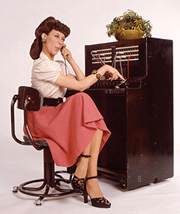 Talking and laughing with Lily Tomlin in the morning. Then she calls me back to talk and laugh some more in the afternoon. Did I mention I love my job?
Talking and laughing with Lily Tomlin in the morning. Then she calls me back to talk and laugh some more in the afternoon. Did I mention I love my job?
The comic legend we first met thanks to the freewheeling ’60s-era comedy show Rowan & Martin’s Laugh-In has in the course of her dazzling career gathered five Emmys, two Tonys, a Grammy, and a Drama Desk Award, among others. She was nominated for an Oscar for her supporting role in Robert Altman’s 1976 masterpiece, Nashville. More recently, in 2003, she received the prestigious Mark Twain Prize for Humor, considered the Holy Grail of comedic achievement, in a ceremony at the Kennedy Center.
Kudos and statuettes aside, the remarkably down-to-earth, 68-year-old Tomlin (her birthday is September 1) [this interview took place in 2007] credits much of her success to her 36-year collaboration with Wagner. Why they are the entertainment industry’s most successful female couple is made obvious in this interview.
Read till your face hurts.
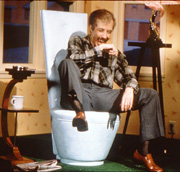
Blase DiStefano: What was your childhood like?
Lily Tomlin: My mother and dad are both from Kentucky, so they would come up to Detroit for my dad to work. I was born in Detroit in a very racially mixed, very diverse neighborhood—predominantly black and blue collar—and lived in an old apartment house. I just loved it, because it was filled with all kinds of people—a lot of Southerners up there to work and a lot of more middle-class older people on a fixed income who had been teachers and professional people. Educated, uneducated, political, apolitical, radical, conservative, old, young. There was one divorced person—everybody else talked about her because her boyfriend slept over. And there were two gay women that lived in the building, older women. No one said they were gay at that time, but my best recollection is one of them wore what I thought of as men’s shoes. I was just mad and fascinated about everybody.
Every summer I went to Kentucky. I had so many relatives down there. My mother’s sisters and brothers and my dad’s sisters and brothers and my brother and I. They used to have an old bus called the Brooks bus…those Southern buses that got instituted to take people back and forth from industrial cities. Detroit was a big mecca, and we used to take that bus every summer. Before my mother started working, she used to go with us. Then after she started working, when I was about 12 and my brother was about 8, she wouldn’t come down until later, and then my dad might come down. So I had that whole rural farm Kentucky thing going on and then go right back to inner-city Detroit with the different racial attitudes and the different points of view. I just got a tremendous amount of exposure to people, and then I’d meet people later that had never even met a black person.

We lived in a middle-class neighborhood, and there was a black woman who came in occasionally to iron some clothes. I always liked her, but I was always kind of uncomfortable with the whole situation — she wasn’t allowed to eat with us…
…at the table, I know. All of my relatives, too, in the South. I couldn’t believe it, because I had so many black friends from school—I grew up with black kids. Mattie was my aunt’s housekeeper—well, not exactly a housekeeper. In the South they had people to help wash the clothes on those big old farms, and Mattie never ate at the table. She always ate by herself. It was so weird to me.
Me, too. I just remember thinking, What is this? Why am I here? I’m an alien, please let me go!
It’s true. I mean…I could be patting us [gay people] on the back, but I used to say, There is no excuse for a square gay person. I never dreamed there could ever be such a thing, because anybody who has to live outside the culture understands and sees the fallibilities, because they identify.
Back to your childhood. When did you change your name from Mary Jean to Lily?
My mother’s name is Lillie Mae, and I always loved her name. My dad’s name was Guy. That was a great name, too—Guy Tomlin. Anyway, way back in 1962, we were living in New York, and one day I read, in the Village Voice or something, that they were looking for English acts to be in a new cabaret review. That’s the day I changed our names to Lily and Guy Tomlin, because I thought it sounded so English. We went and pretended we had English accents. We didn’t get hired for the review, but there was a guy in the audience who was producing a classic mime show at another theater. I wasn’t trained as a mime and neither was my brother, but we were just physical. My brother didn’t want to do it, but I was hired to be in the mime show. There were four kids, and I was like the second tier. I didn’t have to do anything too demanding. I was introduced as Lily Tomlin, and I got my Equity card as Lily Tomlin. I don’t even know if I have ever talked about that. If I have, certainly not for many, many years. So you got something new out of me.
Did your father ever get to see you become famous?
Yes, he did. My dad was so tickled that I was on Laugh-In. When the show had been on the air for about two months, he decides he’s going to take us out to dinner. Of course, it was like a tavern, a bar on one side and a little restaurant. There was a young boy and girl from Chicago playing the piano and singing. The waitress comes over, and my dad points to me and says to the waitress, “Who do you think this is?” And the waitress looks at me and says, “I guess that’s your daughter.”
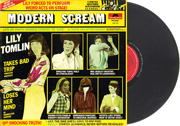
And he says, “Yeah, you’re damned right.” He says, “Get up and sing a song, Babe.” I said, “Daddy, don’t ask me to sing a song.” (I used this on one of my very first specials, because I thought it was just absolutely sublime.) He says, “Get up and sing a song for the people.” I said, “Daddy, don’t ask me to sing, please.” He said, “Babe, you gotta learn how to be popular.”
The boy and girl recognized me, so they came over. They asked if they could play anything for me, and my dad—he had a real old whiskey-deep voice—he raised up and said, “Son, do you know ‘Froggy Went a Courtin’ ?”
And the boy says, “I don’t think I know that one.” So my dad starts singing it [imitating her dad’s voice]—”Froggy went a-courtin, ‘n’ he did ride, uh-huh, uh-huh….” Anyway, it was too divine.
He died six or seven months after that [in 1970]. Before he died, he was in a coma, and the doctor said he wasn’t gonna come out. My Uncle Lud [Tomlin] and Aunt Marie came up from Kentucky, and he finally woke up for a couple of days. Marie goes in there—she’s very religious, most everybody [in the family] is, but not my dad—so Marie goes to my dad and she says, “Guy,” she says, “Lud has prayed that if you’re not saved, the Lord will take him instead of you.” And my dad looks at her and he says, “Marie,” he says, “go in the waitin’ room and tell everybody that everything between me and the Lord is okey doke.” So at his funeral the preacher was able to say, “And Mr. Tomlin told Marie Tomlin that he was all right with the Lord” and all that stuff, so everybody could feel pretty good about that.
He was a character. He was great. My mother was, too. My mother was very witty and funny. She wasn’t quite as freewheeling as my father.
When did your mother die?
She died two years ago today [July 12, 2005].
I know that your mother got to see you become famous, because I used to record shows that you were on. I’ve got a Joan Rivers show you were on.
As Ernestine?
No, you came on for the whole hour, and your brother [Richard] came on…
Oh god, in the daytime! He came on with Ernestine’s wig on!
Yes.
Oh, and he never took the wig off…and my mom came on, too. Richard said he was my brother Ernie.
You won’t believe this, Blase. Another time when I was on with Joan, I went on as Ernestine, and I did a takeoff on Flash Dance. Ernestine goes on the Carson show, and Joanie is the host. She goes on in dance clothes like she’s been at rehearsal—she’s going to quit her day job after she’s on TV doing this dance number.
I called my brother up, and I said, “Go to the house”—because we had a bunch of Ernestine wigs and costumes—I said, “Get a couple of friends and go to the house and get dressed up as Ernestine and come down to The Tonight Show as Ernestine’s fan club.” When he walked in, I screamed. He looked more like Ernestine than I ever could. They did about a two-second cut to them in the audience, and the three of them are in the audience and they are all waving and throwing kisses to Ernestine. Those are the kinds of things my brother and I used to live for.
I was always doing specials in those days, and everybody would say, Oh, you’ve gotta do Ernestine. So we started trying to invent ways to use Ernestine that would be hipper. This was back in the 1970s, so there’s one tape we were actually smoking a joint, but I cut all that out when we put it out back in 1992 or 1993, when I first brought out videos. I sold them out of my garage, and [you could get them with a] lock of my hair.
We do one where Ernestine was calling people in the middle of the night and telling them that their number has changed per their order. We were trying to find different premises, so that we wouldn’t have to do Ernestine in the old way. And for some reason, we’d just be lucky and hit somebody who didn’t know Ernestine or they didn’t think of it. I’d keep repeating the work order and the date and “I’m sorry, sir, but according to our files, you requested a change of number and blah blah blah,” and we had four or five different premises. Like the government told us that we had to institute a pilot program to save energy, whereby people would only have an eight-hour shift on their phones. This was before the divestiture. [We would say that] we were trying to humanize the phone company, so we were trying to get a human dial tone and a human busy signal. The people would be so dear—they would actually try [to make the sound of a dial tone or busy signal].
I know AT&T offered you money for use…
Oh, that was way back in 1970. I was on Laugh-In. It was for me to do commercials as Ernestine.
I know you turned it down, but then you did something on Saturday Night Live…
Oh, with that great piece, yeah. Actually, Al Franken and his partner at that time wrote that piece. And Al is running for the Senate now. But [the famous phrase is], “We don’t care. We don’t have to. We’re the phone company.” [To read an excerpt from the skit, click here.]
You know, AT&T is going to come back around. They have swallowed up everybody. I’ll probably be able to drag that stuff out again.
Was it around this time that you met Jane?
I met Jane right after I was on Laugh-In, in March of 1971. So this past March we have been together 36 years. On the old LP of Modern Scream, in the shiny part on the master, we scratched the date we met.
We laughed so hard when we were putting that album together. It was in 1975…and we were doing Lucille…her coming over to borrow bread. “Jesus, how am I supposed to make bread pudding without any bread?” So she comes over to borrow I don’t remember what, and then she drinks all the brandy while she’s sitting there. She says [imitating Lucille’s slurred voice], “You got any bread, Lily, so I won’t have to shop?” So we wrote some line from that on the other side. [The line is, “How’m I gonna make pudding with just raisins?”]
In 1976 you were nominated for best supporting actress for Nashville. What do you remember about that evening at the Oscars?
I remember a lot, because I got up in that big getup and went with [director Robert] Altman. I went over to NBC and I got a knit dress, real form-fitting with silver paillettes on it. And I got old fox furs from the costume department and huge rhinestone earrings and everything and long silver gloves and the tiara. I was trying to go as a 1950s movie star, and, of course, I wound up looking a little bit like Princess Margaret. I did it to amuse Altman, too, and myself. I had big old sunglasses on, because if I had won, I had planned to say, “Some of you would say I’ve gone Hollywood.” Of course, I never got to say it. But the best part is the next morning when Mr. Blackwell on Good Morning America or The Today Show or something…he leans into the camera and he says, “And Lily Tomlin, we don’t wear tiaras.”
What about when Ernestine is nominated for Flash Dance?
She goes to the Emmys in a huge gown with wolfhounds. Five hours I’m sitting in the Emmys with my face screwed up, and she doesn’t win. Cloris Leachman wins. I was sitting behind Diana Muldaur, who was the president of the academy at that time [Tomlin, dressed as Ernestine, was seated in the second row, right behind Muldaur], and I lean forward to Diana, and I said, “Oh, Miss Muldaur, I’m so excited, this is my first Emmys [to attend].” [Tomlin personally had a number of Emmys at the time.] She turned to me and says, “It may be your last.”
They thought I was going to embarrass the academy. Now would anybody go to that much trouble? I had a big Bob Mackie gown, I had these hounds, and a black muff. The producers got a big kick out of the fact that I was in that big getup, cuz it was fun. But I had a big black hankie made with a big white E on it in case I lost. When they announced Cloris’ name, poor Ernestine is just sitting there so stoic. Her little face starts to crumble, and I pulled that hankie out and just sobbed into it. I didn’t know if I was on camera, I just played it out. So I sobbed into the camera with that hankie.
OK, so I had to tell you all that long roundabout story to tell you that the next day people call my agent and say things like, “Wasn’t Lily really upset last night? And lost to Cloris?” I got one decent letter from a CBS executive—”Last night, Ernestine, you were a vision of dignity and pathos.”
Society for the Performing Arts presents “An Evening of Classic Lily,” Saturday, October 6, 2007, at Jones Hall. Tickets ($20–$100) can be purchased online at www.spahouston.com by phone at 713/227-4SPA, or at the courtyard level ticket office at Jones Hall, 615 Louisiana.





